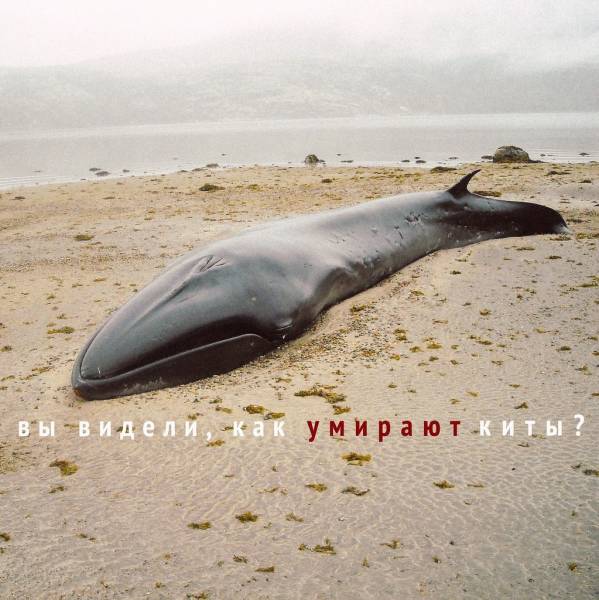
About “groups of death” who prey on Ukrainian Teens, today, few who have not heard. Alas, the criminals go to new lengths.
“Literally yesterday’s discovery: invitations to join this group come the text messages. This was said by the girl’s parents from Ivano-Frankivsk region, — told the “Today” Zaur Urusov, senior Lieutenant, senior inspector of police, who was closely involved in the “group of death” for the past two weeks. — It is possible that the phone numbers of friends poured teenagers, has drawn into the “game”. However, we can say that the teams come from one group wielding the whole scheme of suicide. These people are not connected, there is a General formula that work. One directs the idiocy, the other greed: suicide is often one child takes on a different video, then the rollers are sold at closed forums for big money”.
According to Zaur, all special agents are working on this problem, pushing other priorities to the background. But parents also need to know how to protect your child.
How to understand that your child is in a deadly game, and how to save him, said the crisis psychologist, senior lecturer of the Department of psychology of the University “KROK” Nataliya Boychenko and practicing psychologist Olga Perekopivka.
TIPS FOR PARENTS: “PARTIZANA” AND EMBRACING THE CHILD
TO CLEAN WATER. “Ask the child a neutral question, saying that I heard/and that now there is a game “the Blue whale” — advises Olga Perekopivka. And listen what he will tell you. If the story is full of details, which are not written in the network, there is a risk that it is already in the game. Also should be alerted if he leads him on the girlfriend involved in the game: it is likely that he is lying and playing himself”. If you suspect that your daughter or son still in a dangerous community, the psychologist advises not to pick up the phone, turn off the Internet: a teenager if you want, you will always find the gadget and access to the network. “The more you restrict, the more ways to circumvent the prohibitions exist, — the expert explains. Better browse the phones and pages in social networks, but so that the child does not know about it. These games — the case when the invasion of privacy is justified.”
TO THE PROS WITH THE WHOLE FAMILY. Nataliya Boychenko believes that in such a dangerous situation, you need to seek professional help, and it is the parents themselves. “If family relationships have developed so that the child is interested in the topic of suicide and began speaking in the group, the first thing parents must do is to come to a psychologist for yourself, — said the expert. — The child does not need doctors, psychologists and teachers. They need mom and dad, their love and attention. This is great if parents can admit that to find common ground with a teenager is not easy and that mistakes. It’s not wrong to take the advice of the specialist. He told them including how to listen and understand your child. After all, it should be understood that is the parents.”
The child does not want to die. He wants to understand that it is valuable.
TO OPEN THE DOOR. In addition, it is necessary to create all conditions in order for the child to be able to open.
“While it is important to remember that the teenager has a lot of anxiety and tension, — says Nataliya Boychenko. — Just talking about them, he will not. It will take time, that he was ready to have that conversation. And parents should understand that perhaps this conversation would not be with them, and with a stranger who trusts their child (teacher, coach).
The task of parents is to see that the child was something wrong, and to make contact. But not through condemnation or questioning (such an interest is perceived as violence and cause for even greater concern and distrust), and a fellowship in an informal setting and on a topic far from suicide.
Start with a simple: “let’s rest,” “As we have not been in a movie”, etc. Remember: your child does not want to die, he needs the attention and awareness that it is valuable. Yes, on the one hand, he seems to be ready to slam the door, but can’t wait to hold it by the hand. Starting to communicate well, try to talk about your experience, tell your child about their problems that were important at his age, what is the solution found. Just don’t be in the position of Pocitelj and say casually”.
“Now more than ever important emotional connection with the child, focuses and Olga Perekopivka. — Hug him more, tell that his age is also wrong, get involved in some kind of danger and you helped some of the adults. Child it is important to understand that even his “perfect” parents, too, were wrong, and that’s okay, just as okay to ask for help from others.”
LEARN TO SAY “NO.” Both our expert talk about the importance of this skill. “Experience shows that 9 out of 10 teenagers do not know how to say “no”, — says Nataliya Boychenko. It is a feature of age because adolescents of the border has not yet been built. Thus, once “the game” and even deciding to get out of it, they can’t do because of the lack of skill to refuse. Here, the recommendation is simple — to teach children refusal. Don’t know how to yourself — find a specialist”.
THE POWER OF FEAR. Also do not forget that the creators of the groups, different methods of manipulation down to intimidation, and if a child suddenly decides to leave, it will be possible to keep scaring that such a step can hurt his family. If the child admits that he was bullied, parents should explain that they can handle it and will protect it. “For children it is a revelation that the person who’s threatening their families, most likely, the patient, and its purpose is to force the child to do his will. Children, this is very sobering! Tell them that manipulation being all: how many adults are carrying their life savings to fraudsters who phone them in the night and say that their loved ones are in trouble! Show your child that everything is vulnerable — it is very important to hear it from an authoritative adult,” explains Olga Perekopivka.

ALARM BELLS: THE CHILD AT THE FEATURES
Operatives of the police have made a selection of basic waveforms, noting that, parents it is time to sound the alarm. You need to pay attention to the following:
- As the child is getting enough sleep at night, even if borne before: if there are signs of lack of sleep is a cause for concern. All the tasks of the “game” give him at 4:20, there is even such a group: “Wake me up at 4:20”. Entering into it, the child creates an additional page where there are photos and provided the wrong data. Her do the job.
- How much time is spent in “Vkontakte”: perhaps, all of a sudden just started to live in it. Other social networks “groups of death” is not fixed yet.
- Joined the communities: “the Whales are on their way up”, “Wake me up at 4:20”, f57, f58, “Quiet house”, “Rina”, “Napoca”, “Sea whale”, “50 days before my…”.
- Enthusiastically and universally draws butterflies, whales, unicorns.
- On the body of the child appeared cuts, scratched blade on the skin of the figures, whales.
- The child suddenly became unusually reserved.
- Begin to do extreme things and photograph them, take video. For example, to cross the road before the hood of the car, beat the Windows of other apartments, to climb to the roof of the house, to the background height to take a picture of your feet. According to Zaur Urusova, children are taught to depression — in the last stage they were psychologically prepared.
- If there are any on the page of the teen the countdown: he’s probably already on the way to the last mission — suicide.

Countdown. When there is a timer — the child is already on the verge
THE MOST POPULAR GAME-KILLER
- “The blue whale”
- “Whales swim up”
- “Wake me up at 4:20”
- f57 or f58
- “A quiet house”
- “Rina”
- “Napoca”
- “Sea of whales”
- “50 days before my…”
Hashtags: #f53 #f57 #f58 #d28 #morenito #tihedam #chocoberry #mlecznych

We will remind: the essence of these games is that the teenager engages in social media groups and performs at the command of the curator. They are different and are almost always associated with injuries or danger. For example, the cut blade on the hand drawing, pass in front of a rushing train to go at night in an abandoned building, etc. the Whole process usually filmed (the criminals then sell these recordings to the thematic portals).
The final order — to kill himself. Often, if the child refuses, the criminals calculate the IP address of the participant (for example, when he declares that he leaves the game — send the link where it needs to go, and so get the address) and threatened that the cowardly will have to answer to the families.
WHAT YOU NEED TO ASK YOURSELF
Renowned psychologist Svetlana roiz advises parents of teenagers to ask these questions. They will help to understand whether there is a risk that their children will want to test himself in a dangerous game.
1. Can children looking at you, to believe that adult life brings something other than gravity and responsibility? If there’s any joy? Whether you say: “Here I will grow — to know how hard it is!”?
For the children we are the filter through which they look to the future. And because of this, many people are afraid to grow up and hide from the real threat of living in a “safe” area. Therefore, it is important to take care of their resource and allow yourself to enjoy the life to show how you cope with difficulties as an optimist.
2. Can the child tell you what’s bothering him? Knowing that he can just listen, support, not to give advice or to shout that he is disappointed and frustrated. Can he rely on your power? Does the child that you will be able to withstand any of his emotions? Can you tell him, “I’m an adult, I can handle it”?
3. Can your child be the one?
Sometimes he leaves the network because that just doesn’t know where to direct attention. This skill should be cultivated since early childhood. Children 2.5—3 years start to play themselves in role play with dolls and toy cars, animating characters. We can connect to the game, and then leave the kid for a lesson. Children 5-6 years old love to play role-playing, Board and outdoor games. It is important that you have enough strength to support them, not sit them in front of a cartoon or a tablet.
4. Do you give him a chance to rest? If he had the feeling that his entire life was consumed by the school?
It is important, but only part of life. He will look for opportunities to get out from under the press of fatigue. And often he who is not able to relax himself, chooses crazy ways. When he says: “I no enough time!” — ask him it would be important to keep up with the day.
5. Do you allow yourself and him to make a mistake?
One of the reasons perfectionism is an attempt perfection to earn love, and a sense of importance. And one day you may be thinking: “If I’m not the first, I do not have a place in my life.” And similar games, these thoughts will only fuel. It is therefore important to allow yourself to be alive, make mistakes and talk about it.
6. Overloaded the child your expectations? Maybe try to say it aloud or to yourself: “you Have the right to be ourselves and your expectations I’ll shoot”?
7. Can he at least something to decide and to choose? He can feel his personal strength but the resistance to do homework?
8. Does he understand the value of caring for the body?
Because it is our first house, and even if we did it badly in the global “house” — the world — will be difficult to feel comfortable. Teenagers tolerate their failures in communicating its “thick-thin-gawky-eared” body. Of them you can not tease. The theme of the body — the theme of shame and insecurity for them. It is important to explain that the body is changing, and he needed help to handle it. Hearing your child about your body? If he sees how you take care of it: charging-exercise, balanced diet, shower, etc.?
9. Allow yourself to ask and accept help? For a teenager sometimes it is equivalent to say to the world “I’m a loser.”
10. Do we know about the features of this age, that makes sense to expect and what is unrealistic?
11. Can he say no when you need to? Can say “no” to you? Can say, “This is mine”? If he can be selective in foods, clothes, friends? If he allows himself to ask awkward questions? Can he be critical of information?
To improve analytical and critical thinking will help of the game of checkers and chess, classical music, Hiking in the quests. It can help to book of Ken Watanabe, “Learning to solve problems” and the TV series for teenagers “Adam ruins everything”.
12. What the child thinks about himself, what he says about himself, that appreciates? We focus only on his mistakes and Mature, or features too?
Here you will popular teenage diaries like “I-diary” (directed to the teenager described his plans in a colorful book).
13. Do you have a child in your life comfortable and safe contacts? Is there an adult (not a parent) who can be a mentor?
14. Is there a family feeling an emotional connection?
Are there rituals: talk before sleep, hugging goodbye. These actions, which we remember with pleasure, feeling it important “We”.







